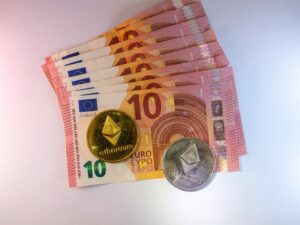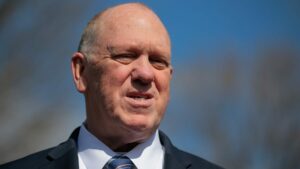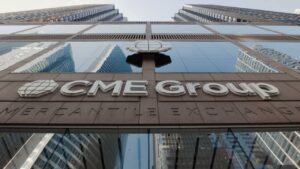Markets
The Bank of England kept its policy rate unchanged at 5.25% in a 3-way split with two members (Mann & Haskel) preferring a 25 bps rate increase to 5.5% and one member (Dhingra) voting in favour to reduce it by 25 bps to 5%. That compares with consecutive 6-3 votes (3 in favour of +25 bps) in November and December. The UK central bank dropped forward guidance saying that further tightening in monetary policy would be required if there were evidence of more persistent inflationary pressures, replacing it by the message that the Monetary Policy Committee will keep under review for how long the Bank Rate should be maintained at the current level. The MPC published a new policy report conditioned on a market-implied path for the Bank Rate that declines from 5.25% to 3.25% by the end of the forecast period, almost 1 ppt lower on average than in November. CPI inflation is now expected to slide further to the 2% target by Q2 2024, before picking up again (energy-related) and remaining above the 2% inflation target until the end of 2026. This reflects the persistence of domestic inflationary pressures, despite an increasing degree of slack in the economy. Conditioned on the alternative assumption of constant interest rates at 5.25%, the path for CPI inflation is significantly lower with inflation falling below the 2% target from 2025 Q4 onwards. Risks to the inflation outlook became more balanced. GDP growth is expected to pick up gradually during the forecast period (0.5% from Q1 2024 to Q1 2025 and 0.8% from Q1 2025 to Q1 2026), in large part reflecting a waning drag on the rate of growth from past increases in Bank Rate. Business surveys are consistent with an improving outlook for activity in the near term. At the press conference, BoE governor Bailey stressed the change in forward guidance but warned that the BoE isn’t there yet. He didn’t pre-commit to a specific timing on a first rate cut. As with the January ECB and Fed policy meetings, the market reaction was extremely modest. Sterling traded slightly on the backfoot going into the meeting, reversing the move afterwards. From an EUR/GBP point of view, support at 0.8493 (2023 YTD low) seems now cemented. UK bond yield changes range between 2 and 3 bps across the curve. UK money markets fully discount a rate cut by the June 20 BoE meeting.
Other post-FOMC market moves are very orderly as well. German Bunds marginally outperform US Treasuries though daily yield changes for both are negligible. European inflation fell as expected by 0.4% M/M in January, but both the headline and core CPI Y/Y-prints remained a tad above consensus at respectively 2.8% (from 2.9%) and 3.3% (from 3.4%). US eco data included slightly higher weekly jobless claims (224k from 215k) and a smaller than expected increase in Q4 unit labour costs (+0.5% Q/Q vs +1.2%). The manufacturing ISM will still be released later this afternoon. EUR/USD set a new YTD low at 1.0780 before returning just above the 1.08 handle. European stock markets are mixed with US indices already forgetting about yesterday’s beating (up to +0.7%). We finally mention a significant outperformance of Hungarian rates (up to -15 bps) as PM Orban gave up resistance against a €50bn aid package for Ukraine. A similar reversal of risk premia is also, but less, visible in EUR/HUF (383).
News & Views
The Swedish Riksbank today left its policy rate unchanged at 4.0% as expected. However, the RB substantially changed is assessment on future policy compared to end November. Rate increase have contributed to lower inflationary pressures. Inflation (CPIF 2.3%, CPIF excluding energy 5.3% has developed in line with the Riksbank’s forecast. This creates greater certainty with respect to the RB’s assessment of inflation. Activity in the Swedish economy also materially cooled. With especially core inflation still being too high and an going risk of setbacks, RB expects that a contractionary monetary policy is still needed to stabilize inflation close to the 2% target. The RB sees less risk of inflation becoming entrenched at levels that are too high. In this respect, the RB doesn’t exclude a first reduction in the policy rate in the first half of this year. This is a material change from its assessment in November when the RB still left the door open for an final additional rate hike. At that time it only saw room to cut the policy rate in 2025. The RB accelerates the sales of bonds from its QE portfolio from SEK 5 bln p/month to 6.5 bln. Changes in Swedish yields were limited. Still, the soft U-turn of the RB triggered renewed selling of the krone. EUR/SEK jumped from the 11.24 area to currently 11.30.









